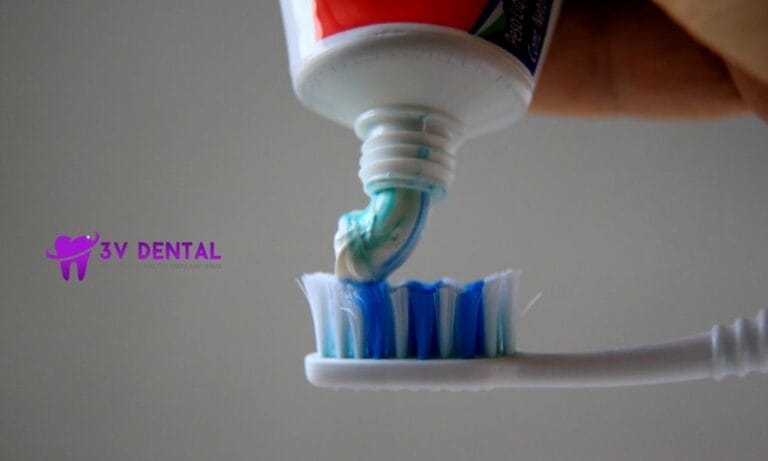Fluoride has been a mainstay in oral health for decades, hailed for its ability to prevent cavities and strengthen enamel. But recently, more people have questioned its safety and effectiveness, leading to a growing trend of fluoride-free toothpaste. So, should you be avoiding fluoride in your toothpaste? In this blog post, we’ll explore the reasons behind the controversy, the potential risks associated with fluoride, and whether switching to fluoride-free toothpaste is the right choice for you.
What Is Fluoride?
Before diving into the reasons some people choose to avoid it, let’s briefly cover what fluoride is. Fluoride is a naturally occurring mineral found in water, soil, and various foods. For years, it has been added to drinking water and dental products to help reduce the incidence of tooth decay. Fluoride works by strengthening the enamel (the outer layer of your teeth), making it more resistant to the acids that cause cavities.
The Benefits of Fluoride in Toothpaste
1. Cavity Prevention
- Fluoride is effective at remineralizing teeth and reversing early signs of tooth decay. By reinforcing the enamel, it helps to prevent cavities from forming.
2. Strengthening Tooth Enamel
- Enamel is constantly under attack from acids found in food and drinks. Fluoride helps strengthen this protective layer, making it more durable.
3. Cost-Effective Dental Care
- Widespread use of fluoride has been credited with reducing dental decay, leading to fewer dental visits and lower healthcare costs.
While the benefits are clear, there are also concerns that have prompted many to avoid fluoride. Let’s examine the reasons why.
5 Reasons Why People Avoid Fluoride in Toothpaste
1. Potential Health Risks
The main reason people avoid fluoride is due to concerns about its potential health risks. While fluoride is beneficial in small amounts, excessive exposure can lead to a condition known as dental fluorosis, which causes white spots or streaks on the teeth. Although fluorosis is typically a cosmetic issue, it’s a sign of excessive fluoride intake during the developmental years (usually before age 8).
More severe, though rare, is skeletal fluorosis, a condition caused by long-term, excessive fluoride exposure that affects bones and joints. Some studies also suggest that fluoride can accumulate in the body over time, potentially leading to other health concerns such as:
- Thyroid Problems: High levels of fluoride have been associated with lower thyroid function. Fluoride can potentially mimic iodine, which the thyroid needs to produce essential hormones.
- Neurological Effects: Some studies have raised concerns about fluoride’s effect on cognitive development, particularly in children. A study published in The Lancet classified fluoride as a neurotoxin, although further research is needed to fully understand this link.
Key Takeaway: While occasional use of fluoride toothpaste is unlikely to cause these problems, individuals who are sensitive to fluoride or who are concerned about cumulative exposure might opt for a fluoride-free alternative.
2. Environmental Concerns
Another reason some people choose to avoid fluoride is its impact on the environment. Fluoride can accumulate in soil and water, which affects plant and animal life. Some critics argue that the widespread use of fluoride in water and dental products contributes to unnecessary pollution.
For those who prioritize environmentally-friendly products, switching to fluoride-free toothpaste might be one step toward reducing their ecological footprint. There are numerous natural and eco-friendly toothpaste brands that avoid using fluoride and offer biodegradable packaging, reducing overall waste.
3. Fluoride Sensitivity or Allergies
While rare, some individuals experience sensitivity or allergic reactions to fluoride, which can manifest as skin irritation, rashes around the mouth, or sores inside the mouth. For these individuals, using fluoride toothpaste can be uncomfortable or even painful, prompting them to seek out alternatives.
4. Preference for Natural and Organic Products
In recent years, there has been a significant shift towards natural and organic personal care products. Many consumers are looking for alternatives to chemical-based products, opting for formulations that are free from artificial ingredients, including fluoride.
Brands that focus on natural oral care often use ingredients like coconut oil, baking soda, and xylitol to help maintain oral health. These ingredients can provide some of the benefits of fluoride without the associated risks, offering a more natural approach to dental care.
5. Concerns About Over-Exposure to Fluoride in Drinking Water
Most people in the United States receive fluoride not just from toothpaste but also from fluoridated drinking water. For those who are already exposed to fluoride through their water supply, the use of fluoride toothpaste may be seen as excessive.
In areas where water is not fluoridated, the addition of fluoride toothpaste can be beneficial. However, in places with fluoridated water, some individuals choose to limit their fluoride intake by switching to fluoride-free dental products to prevent over-exposure.
Should You Switch to Fluoride-Free Toothpaste?
Deciding whether to avoid fluoride in toothpaste is a personal choice that depends on your health, lifestyle, and preferences. Here are some considerations to help you make an informed decision:
Pros of Fluoride-Free Toothpaste:
- Suitable for Those with Fluoride Sensitivity: If you’ve experienced any discomfort or reactions to fluoride, using a fluoride-free toothpaste may alleviate those symptoms.
- Ideal for Young Children: Children under the age of 2 should avoid fluoride toothpaste unless directed by a dentist, as they are more likely to swallow toothpaste. Fluoride-free versions are often safer for kids who haven’t yet mastered the art of spitting out their toothpaste.
- Natural and Eco-Friendly Options: If you prefer natural, organic, or environmentally-friendly products, fluoride-free toothpaste often fits that bill, as many brands avoid artificial additives and focus on sustainable practices.
Cons of Fluoride-Free Toothpaste:
- Less Effective at Preventing Cavities: The biggest drawback of fluoride-free toothpaste is that it doesn’t offer the same level of protection against cavities. While ingredients like xylitol and baking soda can help maintain oral hygiene, they don’t strengthen enamel in the same way that fluoride does.
- Not Ideal for High-Risk Individuals: If you are prone to cavities or have been diagnosed with tooth decay, fluoride toothpaste can provide crucial benefits. People who have a history of dental issues should consult with their dentist before making the switch.
Alternatives to Fluoride in Natural Toothpaste
If you decide to go fluoride-free, you might be wondering how to maintain good oral health. Luckily, there are a few natural ingredients that can help keep your teeth clean and reduce your risk of cavities:
- Xylitol: A natural sweetener found in many plants, xylitol can help reduce cavity-causing bacteria in the mouth. It’s often used in natural toothpaste and chewing gums.
- Coconut Oil: Known for its antimicrobial properties, coconut oil is a popular ingredient in natural oral care. It’s often used in oil pulling, a traditional practice that involves swishing oil around your mouth to remove bacteria.
- Baking Soda: Mildly abrasive, baking soda helps to whiten teeth and remove plaque. It also neutralizes acids in the mouth, which can protect your enamel.
- Calcium Phosphate: Sometimes used as an alternative to fluoride, calcium phosphate can help remineralize teeth and strengthen enamel.
Final Thoughts: Making the Choice That’s Right for You
The decision to avoid fluoride in toothpaste is a personal one. While fluoride has been proven effective in preventing cavities, there are legitimate reasons why some people choose to avoid it. Whether it’s due to health concerns, environmental impact, or a preference for natural products, switching to fluoride-free toothpaste can be a suitable choice for many individuals.
Before making the switch, consider your dental health needs. If you have a history of cavities or other dental problems, consult with your dentist to determine the best toothpaste for your situation. On the other hand, if you’re looking to reduce your chemical exposure, or if you have young children, a fluoride-free toothpaste might be worth considering.
Still unsure? Speak to our dental experts! We can help you find the best oral care routine that suits your lifestyle and health needs. Schedule an appointment today!



